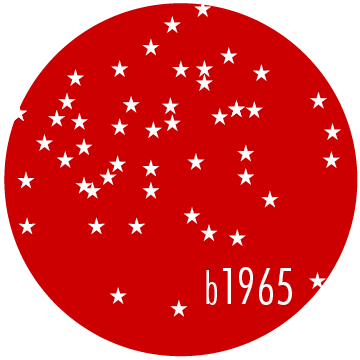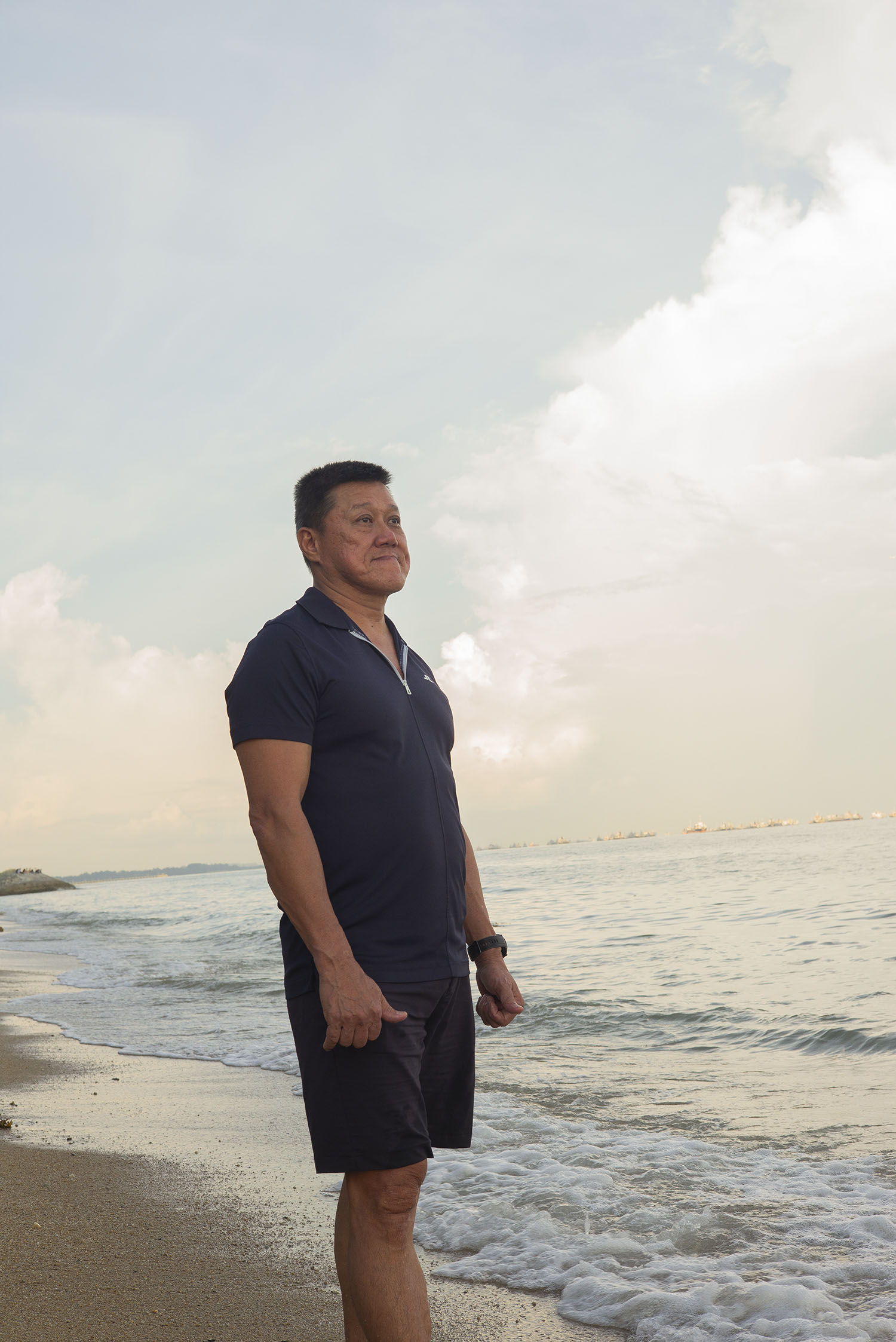Daniel PEK Chin Kee grew up in MacPherson, one of the early public housing estates in Singapore; attended school in the neighbourhood, and was an active sportsman. He said he was “mesmerised” by the ocean from his first dive and decided to become a professional diver. He stayed in the industry for more than three decades and he has dived in the Persian Gulf, the United States and Asia in the course of his work.
Tell me about childhood. Where did you grow up and what are your early memories?
I grew up in Balam Road in MacPherson. It was one of the earliest high rise public housing estates.
My best memories are all about soccer, when Singapore’s most famous team played under the late Choo Seng Quee. There were legendary players like Quah Kim Song, S. Rajagopal, Dollah Kassim and Samad Allapitchay.
When there was a match at the National Stadium, we walked all the way from Balam Road to Kallang. Those days, you could really feel the Kallang Roar.
Even from where we lived in MacPherson, which is a good 5km away, we could feel the excitement.
I also spent every holiday at my grandma’s farm in Lorong Halus, where I learned to swim and catch iguanas, which I sold.
If I am not wrong, one of the goalkeepers from that era lived in your neighbourhood.
Yes, that was Lee Bee Seng, our national goalkeeper who eventually became a coach. He was living in Blk 32.
Would you say that you were more interested in sports than studying?
When we arrived in school, we dumped our canvas school bags in the classroom and headed straight to the open field to play soccer.
Every evening, there were 10 to 15 teams playing near the Shell Sports Club next to our school field.
Almost every HDB block had its own team, if not teams.
Am I right to say that your family did not place much emphasis on academic achievements?
Well, we must still pass lah. When my report card came back all in red, I did not show it to my father. I faked my mom’s signature.
With 12 children to feed, my parents were more concerned with putting rice on the table.
"With 12 children to feed, my parents were more concerned with putting rice on the table."
How did you do in the ‘O’ levels?
I don’t remember getting my certificate. I don’t think I passed any subject.
Were you always known as Daniel or did you go by another name?
You know when you go clubbing and you want to ‘tackle’ girls, you need a name that’s easy to remember. Chin Kee just didn’t work. I probably started using Daniel when I was in secondary three.
Later, when I became a Christian, I was so happy to find out the meaning of the name I had chosen.
I am so grateful to God for preserving me from the ordeal in Iran, just like he had saved Daniel from the lion den in the bible. Daniel in the bible is known for his steadfast faith, integrity, and dedication to God in the face of immense pressure. His story is often cited as an example of how faith can sustain individuals through trials. So it was nice.
What did you do after National Service?
I started my own business – Daniel Renovation Enterprise — specialising in aluminium fittings for flats.
I got one group of friends to be my fabricators and another group as installers. Another bunch of friends from secondary school became my salesmen. They were working as salesmen for companies like Xerox, some were insurance salesmen. They had their day job but at night, they knocked on doors in older HDB estates trying to close sales on my behalf.
"I am so grateful to God for preserving me from the ordeal in Iran, just like he had saved Daniel from the lion den in the bible."
How did you have this idea of becoming a contractor? Did you have experience?
After my ‘O’ levels, I worked in construction. So I had experience working with aluminium sliding doors and casement windows. Those days, most HDB had cast iron sliding doors and windows.
How long did the renovation business last?
I was making money but it was ‘no night no day’(没夜没日). There was no holiday for me. I ‘covered mountain covered sea’ (包山包海).
In the morning, I dealt with my fabricators. After that, I dealt with the suppliers and applied for housing renovation permits. In the afternoon, I oversaw the installation. At night, I dealt with the salesmen. Seven days a week. I was 21, making good money but having no life.
My secondary school friends were partying at nightclubs every night because they were making good money from selling my products. Every time they signed a deal for a three-room flat, they pocketed $300 in cash. For a four-room flat, it was $400. Their commissions were instant because they collected deposits from the flat owners. They then passed the invoices for me to follow up.
But you never joined them in the drinking sessions?
Cannot! I still had a lot of work to do at night.
What was the start-up cost and where did the money come from?
$10,000 and it came from my mom. I am number 11 among my siblings and a favourite. My mother was very entrepreneurial, and she said that if the money was for business, “Let’s go”. With her money, I bought a pick-up and put the rest in materials. This lasted for about one and a half years.
And how did you become a diver?
One Christmas, my friends were driving to Tioman to dive. They showed me all the gear and invited me along. I did not know how to dive but signed up for a course immediately. I will never forget the first five minutes in the water. Back then the water was much cleaner and the clams were huge.
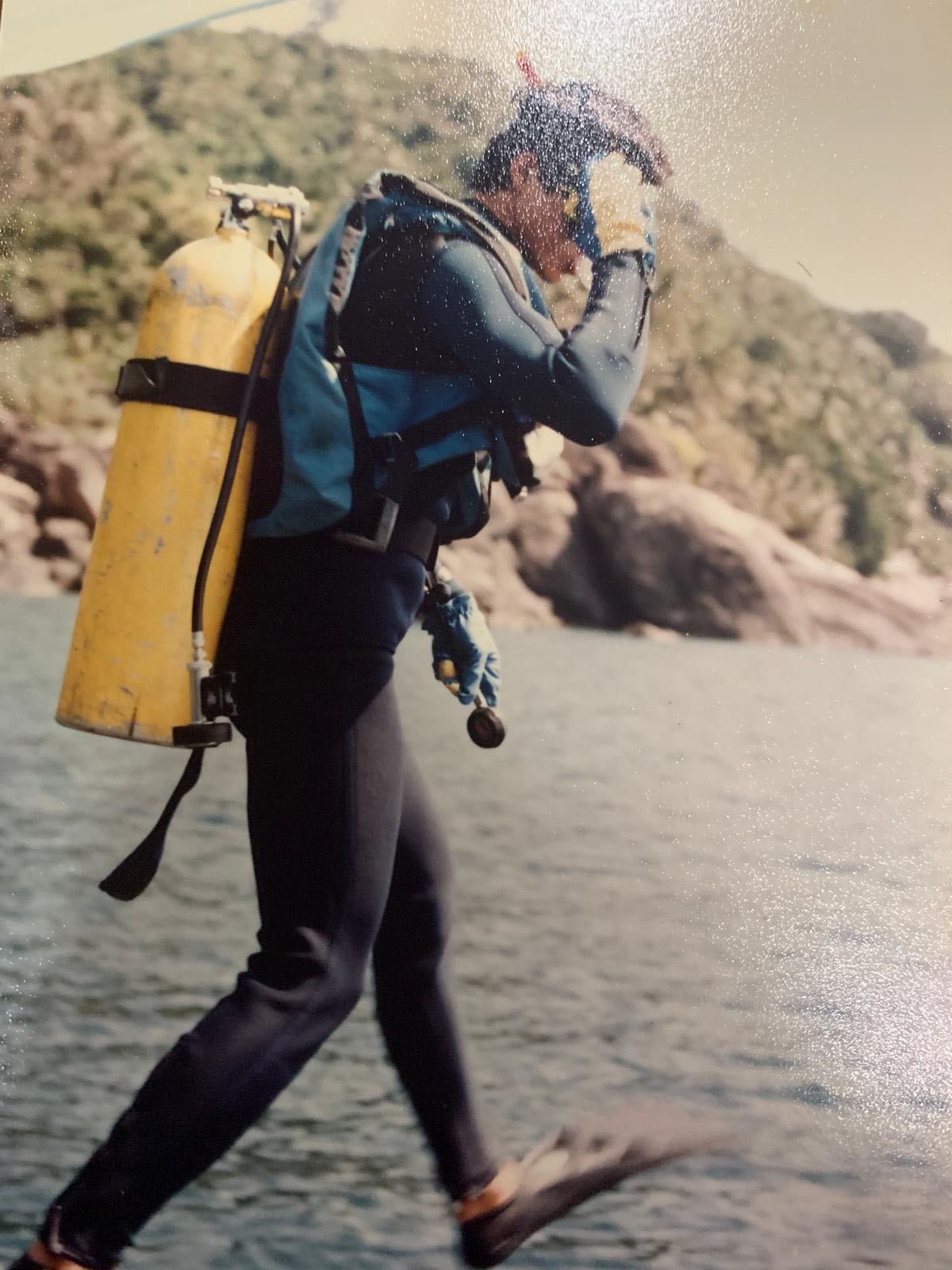
You fell in love with diving on your first dive?
I was mesmerised by the calmness of the water, the multi-coloured corals, and the fishes. Back then, I had a lot of responsibilities on my shoulders, everything was on me. The stress I was experiencing just vanished. Diving changed everything. Even sailing out was special. It was my first holiday.
"I was mesmerised by the calmness of the water, the multi-coloured corals, and the fishes."
You love it so much you gave up your business?
When I came back to Singapore, I asked my foreman to take over the company.
I looked through the Yellow Pages and wrote to about 20 diving companies. I wrote, “I am mesmerised by the ocean. I would like to be a trainee diver and you don’t have to pay me until I am qualified.”
Semco Maritime took me in. They said they would try me out for three months but I became a permanent employee, a qualified diver, after the first month.
The basic pay was $400 but the dive allowances and overtime pay could add up to $4000 a month.
I was making so much money but my weekends were all burnt.
We dived, we surfaced and slept for a bit while waiting for our tanks to be charged, and then we dived again. It was very tough. Very dangerous.
And after that?
In 1988, during the Iran-Iraq War (also known as the First Gulf War), I was sent to the Persian Gulf to salvage AVAJ, a super tanker, an ultra-large crude oil carrier owned by the National Iranian Tanker Company.
I was only 23 or 24. I had worked in neighbouring countries before but Iran was the first big overseas assignment.
Two and a half months after I was there, an accident happened.
Do you remember what day it was and where it happened?
My guess is it was between 4 June and 6 June 1988. The location was around Kharg Island.
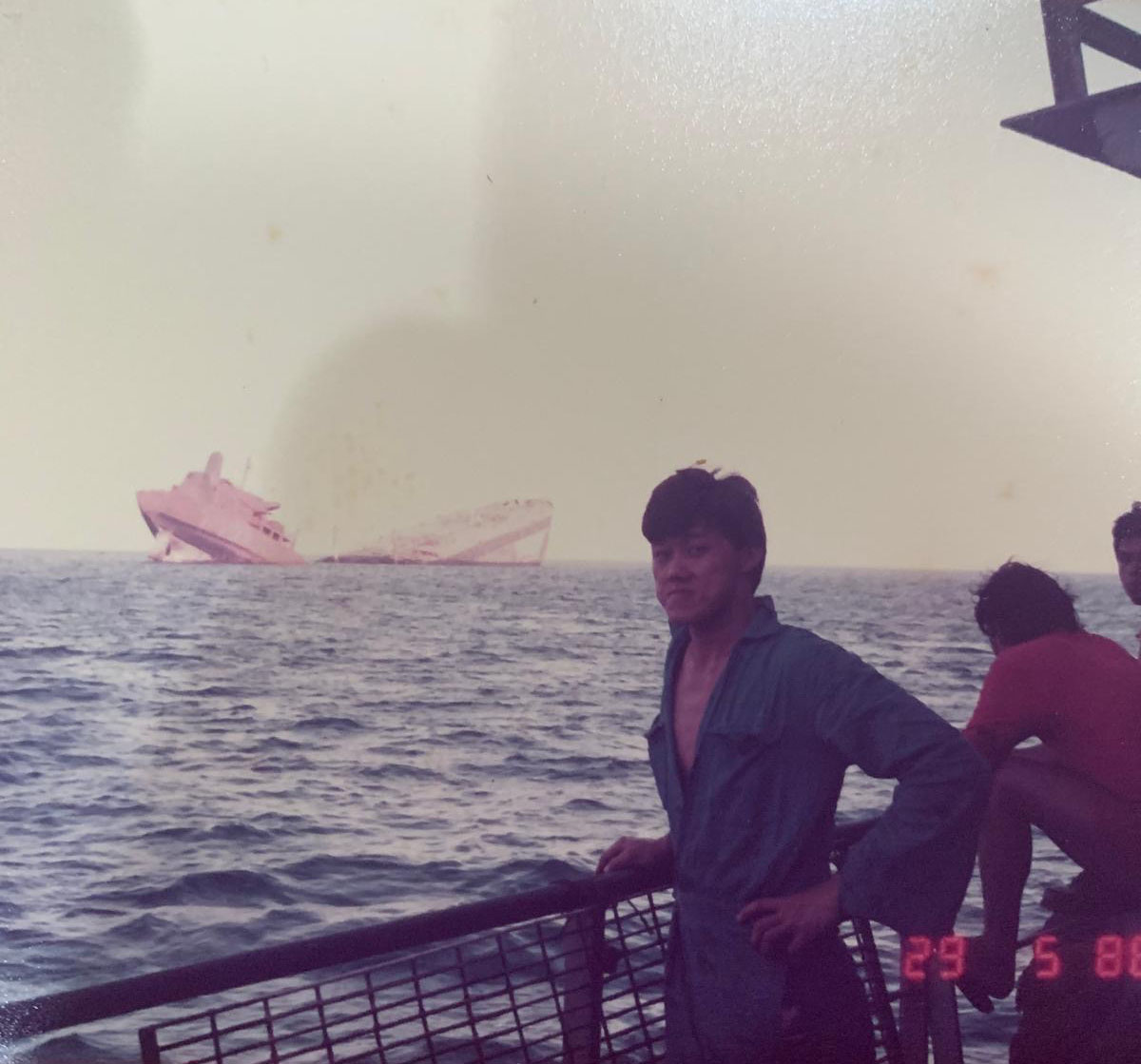
Tell me what happened.
The super tanker was hit by three Iraqi bombs on 19 March 1988 and had sunk 150 feet under the water.
My company had 13 salvage tugboats in the Gulf at that time.
Every day, we dived from the salvage tugs to raise the super tanker.
We were towing the tanker to a safe place when Iraqi Mirage fighter jets fired at us. I was onboard SALVERVE, one of the tugboats towing the supertanker.
I remember I was going out for a smoke after my dinner when the sirens sounded, signalling that we were under attack. I wanted to run to the stern where there were sandbags but I literally flew towards it.
Two people died and five were injured, including me. A tug normally carries 30 to 40 people.
I had shrapnel all over me and a piece was stuck in my colon. The attack happened at around 8pm and I stayed in a crouching position until the next night.
One of my colleagues who died was a welder from the Philippines. He was badly injured but did not die instantly. Despite my own injuries, my instinct was to try to render help but the truth is I could not have done much. The other colleague who died was a radio officer who was attempting to take cover behind the sandbags when he was struck down.
I am a strong person but the pain was really unbearable. Rescue did not come for 24 hours.
In cartoons, when a person is knocked out, he sees stars all over. I literally saw stars.
Eventually two tugs appeared to transfer the casualties.
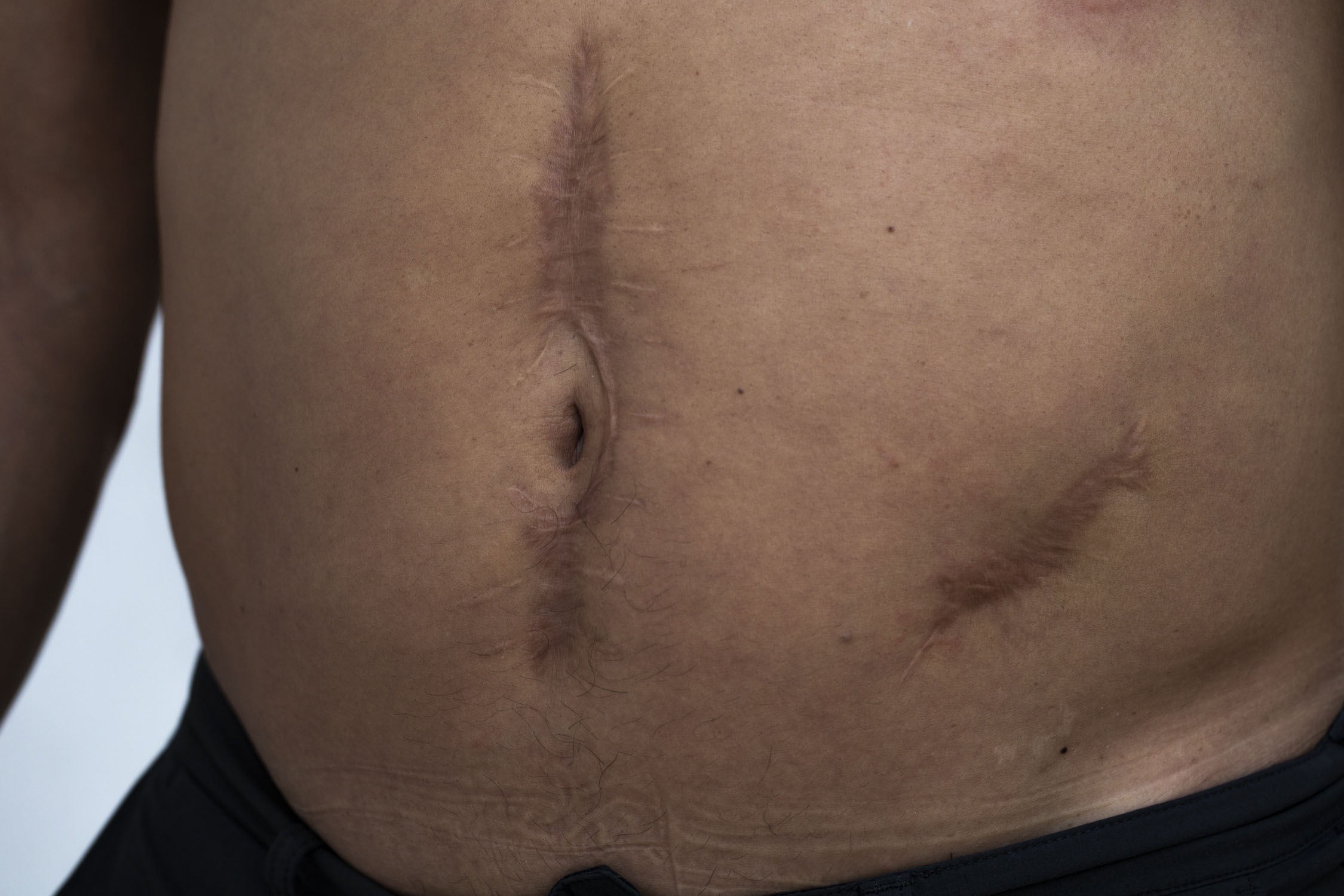
How badly were you injured?
Shrapnel had punctured my stomach and one piece was lodged in my colon. If the shrapnel were not removed, I would have died.
What happened next?
I was transferred to another boat which took me to shore but I was left lying in the open with other injured workers, in a place which I think is a dock.
After that, a jeep transported us to the airport and four hours later, we landed in Tehran, the capital of Iran. The entire place was war torn, with many collapsed buildings.
You were in pain the whole time?
In pain but conscious.
That must be the worst feeling.
Ya, I wanted to die, to kill myself.
We arrived at the hospital at around 8pm and there was nobody to take care of us. Every few minutes, casualties would arrive, people with blown off hands and legs, with worse injuries than me.
How long did it take before someone attended to you?
I was going berserk.
At around 1130pm, the doctor came and I was taken to a surgery. I slipped into a coma for four days.
They stitched up my wounds and then sent me to the ward.
As you can see, there are only three stitches. They could not have done more because there were so many other injured people.
I stayed in that Tehran hospital for about two months.
They made a sign ‘Singapore Doctor’ for me.
Wait, how did you become a Singapore Doctor?
After a few days, I started walking around the ward to kaypoh (loitering around like a busybody) around.
I was looking for a phone to call home but nobody spoke English. I just wanted to stay active and get out of there.
There was a children’s ward near my ward. Many of the kids had lost a limb, an eye.
I started playing with the children and teaching them taekwondo.
I woke up one day to find yoghurt and strawberries on my bed.
I also started singing for them.
A Jewish Iranian engineer responded to the English songs I was singing.
He shouted, “Hey you!”
His calf was gone and he had been lying in bed for six months.
He was supposed to go for physiotherapy every day but he refused to get out of bed.
He was shocked that I could speak English and we started chatting. One day, we decided to go get a drink together and that shocked the doctors and nurses who had been trying to get him out of bed for the longest time.
That was how I became known as the Singapore Doctor.
But that also made me a ‘marked man’, the authorities started watching me closely.
And then you returned to Singapore after two and a half months?
Yes, and I was warded at National University Hospital (NUH) for another three to four weeks.
How did you manage to come back to Singapore?
My company arranged it. I think they paid a lot of bribes to get me out.
How long did it take for you to go back to work and what did you do?
I was on light duty, doing administration and dispatch work at the company for a year. Although I did not dive for a year, I trained every day to regain my strength.
After I received my workman compensation, I left the company and went freelance.
With the money, which was about S$80,000, I went to pursue an international air diving certificate in Scotland.
After that, I joined offshore diving companies, working mostly in the oil and gas sector.
From there, I went to France for another course.
So you kept improving and upgrading yourself? How is that important to you?
To make more money of course. And I love the sea. But more than that, the community of divers consists of crazy people. We are not normal people. We played like crazy.
You partied hard until you met your wife. How did you meet her?
I met her when I was about 31. I thought I wanted to settle down. My mom tried to matchmake me to a woman from China. (laughs)
So you were fooling around and having different girlfriends before that?
Not fooling around. Just enjoying my single life. I was a biker. And I was a good dancer so there was no shortage of women wanting to hang out with me.
I had a fiance and we had bought a flat together under a government scheme but one day, she said she wanted to move to Italy because her best friend was there.
She went, fell in love and did not come back.
Eventually she married an Italian.
"... the community of divers consists of crazy people. We are not normal people. We played like crazy."
Were you upset?
Ya. I think I became depressed without knowing.
I buried myself in one project in Malaysia, laying cables across 13 states.
When I finally returned to Singapore after a year, I became a couch potato. I did nothing but watch TV from morning to night.
My mom was so worried she consulted temple mediums.
Friends were constantly asking me out but I refused to join them.
For about three months, I rode the public buses from one interchange to another. I didn’t even know why I did that.
What is your ex-fiance’s name and are you still in touch with her?
Her name is Wendy. We were on the same flight when I was going to Marseille for training. She had returned to visit her mom and she was already a mother of two kids.
How did you feel then?
I don’t know but I think it was my fault. My lifestyle, my constant travelling. No woman would want to wait for me.
Now back to the matchmaking thing, did you meet the woman from China?
That thing was a joke but I actually met my future wife on the same night.
My sister-in-law, instructed by my mother, invited me to dinner without telling me that the woman I was supposed to be matchmade with would be there.
The woman was from Fujian province and spoke only the local dialect.I almost fainted when I saw her because she was dressed like a Communist. I remember she was wearing something yellow and her hairstyle was really nerdy. (laugh)
And then?
I left the dinner and joined my friends at a birthday party in Europa Ridley’s @ ANA Hotel at Nassim Road, a popular club in those days.
I had not gone clubbing for a while and was dressed quite formally that night. I saw this woman, in a Hawaiian print dress, enjoying herself on the dance floor. She was so energetic and it was love at first sight for me.
And that was how I met Elaine, my future wife.
Elaine and her nursing friends often hung out there to destress after work.
We were married three years later.
I want to switch topics and ask you about something else – when did you become a Christian? And how?
I was about 35, just married and had broken a collarbone playing soccer.
Because of the injury, I was on long medical leave and every weekend, we went to the movies at the Eng Wah cinemas in Suntec City.
New Creation’s The Rock was also there.
I could not help but notice the long queues and started wondering, “What’s so interesting? Why are people queuing so long to go in there?”
One day I told Elaine, “Ok, today I don’t want to watch a movie. Let’s join the queue.” She’s a Christian and she knew that it was a church but we never talked about it. She had taken me to a church in the past but I was not interested.
That day, Pastor Joseph Prince was telling stories that sounded like my own stories.
I just raised my hand and asked to be saved.
"The passion will fuel the desire and sustain the individual."
Now that you are older and successful in your own way, would you tell the younger generation to be like you — just follow your dream and don’t worry too much about studies?
Just follow where your passion leads you. Everyone has a talent and once a person knows what it is, he or she will not be just thinking about money. The passion will fuel the desire and sustain the individual.
Being a Singaporean, what’s one thing you are proud of?
When I travel to the USA, I show my Singapore passport and they just wave me through. It is not the same treatment for visitors with other passports.
From my travels in the region, I realise that we are very well-respected.
Our National Service(NS) training instils in us a sense of urgency, punctuality and responsibility.
What’s one thing you don’t like about Singapore?
It’s too small lah, we don’t have nature.
How would you like to be remembered?
I don’t have a legacy. I am just an extrovert who is generous with friends. A joker.
"I don’t have a legacy. I am just an extrovert who is generous with friends. A joker."
One last question — you were all born in 1965, the same year as Singapore. Is this significant to you?
Sure. Every year that we celebrate National Day, I am reminded of the days when we were still playing goli (marbles). Now look at all the skyscrapers. Our passport is now number one in the world. We have so many number ones.
I have worked with many big boys from more developed countries and I feel that we can be very proud.
We are just a little red dot with no natural resources.
But these days, when our politicians speak, people listen.
When I speak, people listen too.
As an assessor, a supervisor, working with people from all over the world, if I say “7am”, it will be 7am. Nobody will dare to disobey me.
